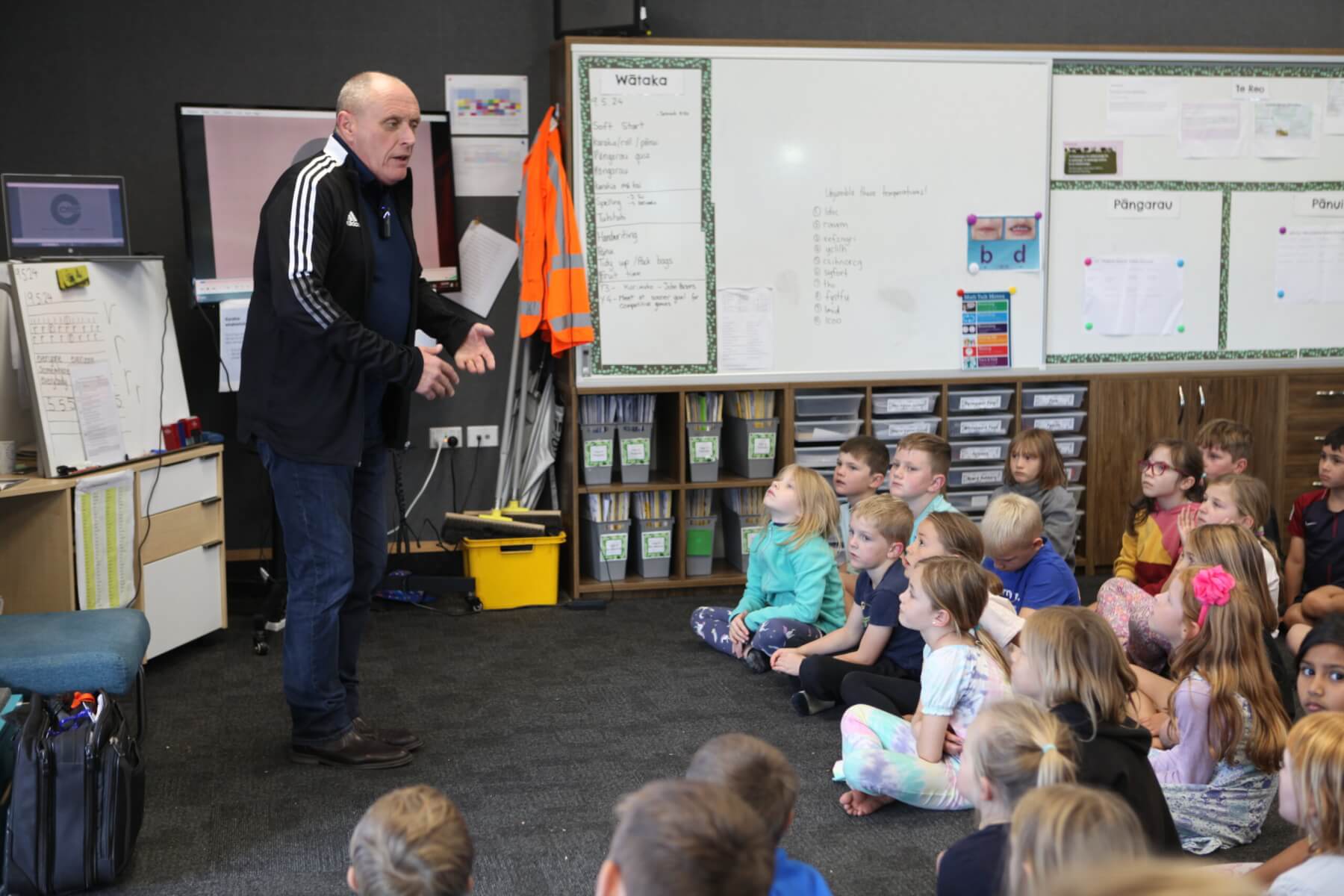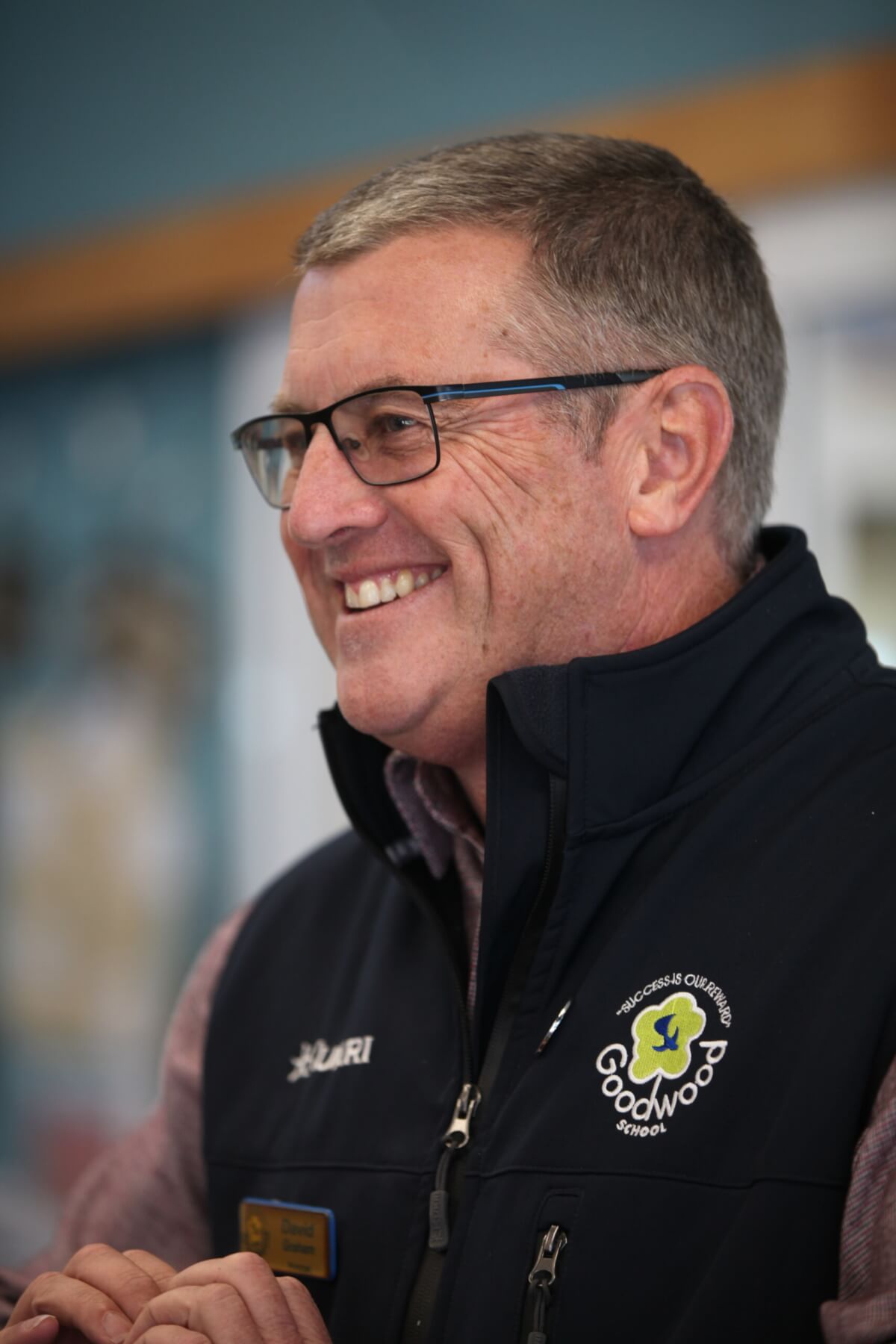Sexual exploitation, exposure to objectionable pornographic material and internet-based abuse are the biggest threats to children’s safety online, says a cyber safety expert.
John Parsons delivers child protection training around Aotearoa alongside the Police, Oranga Tamariki, health professionals and schools.
The risk assessment consultant visited Cambridge last week to run school workshops for local students, parents, caregivers and teachers.

Online cyber safety and risk assessment consultant John Parsons teaches year 3 students and their teachers about cyber safety at Goodwood School. Photo: Steph Bell-Jenkins.
Parsons said “sextortion” – where children were targeted for naked images – was a growing area of concern across New Zealand.
“Children think they’re building a romance with somebody online, they send the naked images and then they’re often blackmailed for money or more revealing images,” he said.
“I’m about to work with a family whose child sent hundreds of dollars to the criminals in an attempt to limit exposure of the picture that had already been sent.”
He said the most effective thing parents could do to keep children safe online was to be confident in their parenting, trust their gut instincts, know who their children were talking to over the internet, and keep technology out of bedrooms until at least age 13.
You’re not their friend, you’re their parent, so it’s your job to protect them
He urged parents of children aged 0-13 to commit to “giving their children a childhood”.
“They need to be children,” he said. “And they need very good, regular sleep patterns. Sleep is the single biggest contributor to their health and wellbeing.”
What they didn’t need, he said, was to be immersed in social media and television programmes like The Bachelor, Geordie Shore, Love Island, Married at First Sight and Naked Attraction, which exposed them to “relationships that are not real” and could inform how they related to others when they were older.
Parsons also warned of the dangers of letting children play R18 video games, which could contain swearing, sex scenes and graphic violence, and expose them to online predators.
He spoke about a 24-year-old woman haunted by intrusive thoughts she blamed on playing an R18 game when she was 10.
“When she often drives a car she imagines driving onto the pavement, which she’d never do…she saw a young boy swinging a plastic golf club but she thought she saw a baseball bat being used in an horrific manner,” he said.
The woman was now “deeply aware of nurturing and protecting” her own children and keeping them away from violent computer games so they didn’t “carry the same traumas”.
“If we marinate children in love and compassion in childhood, we have a very strong chance that that child will become loving and compassionate,” Parsons said.
“But if we raise that child in violence, in aggression, then we reduce that particular chance.”
Goodwood School principal David Graham said it was a parent’s right to be able to see how their children were interacting online.
“You’re not their friend, you’re their parent, so it’s your job to protect them,” he said.

Goodwood School principal David Graham answers questions from John Parsons.









